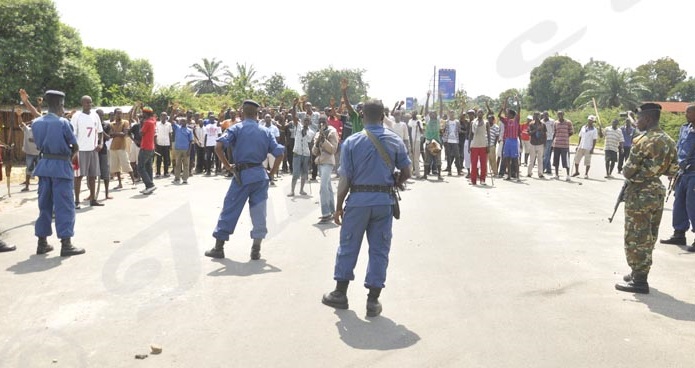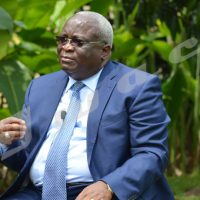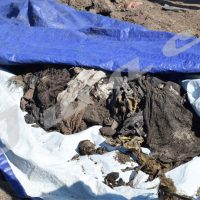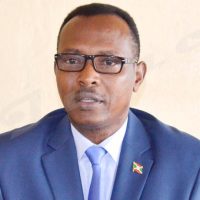 Benjamin Chemouni*
Benjamin Chemouni*
After more than a year of turmoil, the crisis in Burundi is becoming normalised. Violence has become part of daily life for Burundians again. In the international media, Burundi is not making the headlines as it did a few months ago. Hope of a quick resolution has disappeared as the crisis is becoming protracted, neither being a full-fledged civil-war, nor evolving towards a genuine peace. Three main dynamics can account for this situation.

Professionalization of violence
First of all, an efficient machinery of repression is now in place, making the government confident that spontaneous protests will not occur on the same scale as last year. Repression is becoming professionalised and efficient. The regime has learned that killing people in front cameras through blanket violence over the “quartiers contestataires” (rebellious neighbourhoods) is counterproductive. As illustrated by a recent report from Human Rights Watch, repression is now more discreet, targeted at precise individuals, sometimes giving the impression of a fake calm. The regime is able to instil fear among the population while attracting less unwanted attention. In the countryside, public affairs are increasingly run neither by the administration, nor even by the police, but by the alliance of the intelligence service (SNR) and the youth wing of the party, the Imbonerakure, tightening the grip of the regime on rural areas.
Nkurunziza: a man with nothing to lose
The second ingredient for a protracted crisis is simply that Nkurunziza and its inner circle have no incentives, and all the disincentives, to open genuine negotiations with the opposition. First, all bargaining power is currently on Nkurunziza’s side. The political opposition is abroad with no leverage on the regime. Second, any concessions made to the opposition are unlikely to happen because they are extremely dangerous for the regime’s survival. A slight opening of the political space would allow popular discontent towards the CNDD-FDD’s violence, corruption and dismal economic record to be voiced. The CNDD-FDD façade of being the party of the rural poor would further crumble. Third, mechanisms aiming at reviving the Arusha agreement and re-introduce some sort of power sharing will necessarily involve the deployment of international observers and peacekeepers. Given its recent track record of abuse, this is not appealing to the regime. It is hard to see why Nkurunziza would rationally make any concessions to the political opposition.
In this context, the repeated calls for negotiations by the international community is surprisingly naive. No negotiations can occur as long as true leverage on the regime is not found. We’ve already discussed some of them. Economic sanctions are unlikely to constitute one. The delicate balance of asphyxiating a regime without asphyxiating the population is extremely difficult to strike. This is especially true as the regime is sitting on a war chest –the result of a decade of corruption– and can consequently resist lengthy economic sanctions.
More tangible strategies are available. The first is banning members of Nkurunziza’s inner circle to travel in the region or freeze their assets. These sanctions must be applied in the eastern and southern African sub-regions to deny these men any exit strategies for their money and themselves. Similar sanctions taken by the EU or the US, while maybe symbolically significant, are in practice rather useless given that these men do not have strong links with the US or Europe and their respective banks.
Another strategy is to stop the Burundian army’s involvement in the ANISOM. This is likely to create tremendous pressure on Nkurunziza as keeping the army happy will be a headache when ANISOM funds dry up. It would also deny the regime the possibility of rewarding some of its most zealous policemen and soldiers in the repression. This is of course a risky option. Unpaid and frustrated soldiers are never good for stability. But it is at least an option.
An opposition with nothing to loose
The third dynamic for a prolonged crisis is that the opposition has increasingly nothing to lose either. On one hand, the regime displays an obvious bad faith in the negotiations opened under the auspices of the EAC. On the other, violence continues unabated, as shown by the recent assassination of Hafsa Mossi, Burundian MP in the East African legislative assembly. This situation is exacerbated by the still fresh memory of the civil war and the vicious character of the current violence. Horrendous stories of melted plastic poured on victims’ bodies, or heavy weight hung on genitals, are quick to tap into the most irrepressible fears of young Burundian men. It increases the overall likelihood that they will engage in armed rebellion against the regime. Finally, the dismal economic situation further decreases the cost of violent rebellion. According to the World Bank, the GDP per capita has declined by 5.7% in 2015. Overall, it is not surprising that already a quarter of a million Burundians have abandoned their homes. The cost associated to resorting to armed opposition is decreasing every day and might soon become the only viable option in the eyes of many young Burundians.
At the moment, the armed opposition is not yet well structured. Different armed groups (such as Forebu or RED-Tabara) have been constituted, but the relatively low intensity of their activities shows that their recruitment, logistic and financial capacities are still weak. But for how long? Recruiting young men to fight the government is becoming easier every day. This would be eased by the possible sponsorship of armed groups by neighbouring countries. Reports have already pointed out that Rwanda might be playing this role. The consequence would be disastrous as, in the region, external support of rebel movements is the engine of history.
Avoiding the repetition of history
The crisis in Burundi is no longer one of yet another African leader seeking to stay in power. The crisis is now deeper. It is the Arusha agreement being challenged. It is the social fabric, slowly reconstituted after the war, being yet again destroyed. Surprisingly, against this backdrop, and despite the existence of tangible options, the so-called international community remains ineffective in its call for genuine negotiations. As time passes, the incentive for young Burundians to join newly created armed groups is greater as is the risk for history to repeat itself. Genuine negotiations normally occur in Burundi when supported by arm. This was especially the case in 1993, when the results of the democratic elections were not respected by the UPRONA regime and the military. The international community’s call for negotiation, and the economic embargo, did not do much to resolve the crisis. Only under military pressure did the government negotiate in good faith, resulting in the Arusha peace agreement. This, however, took a decade. Let’s hope that this crisis will not last as long.
*Dr. Benjamin Chemouni is a fellow in the Department of International Development in the London School of Economics (LSE). @BChemouni.



















 IWACU Open Data
IWACU Open Data

